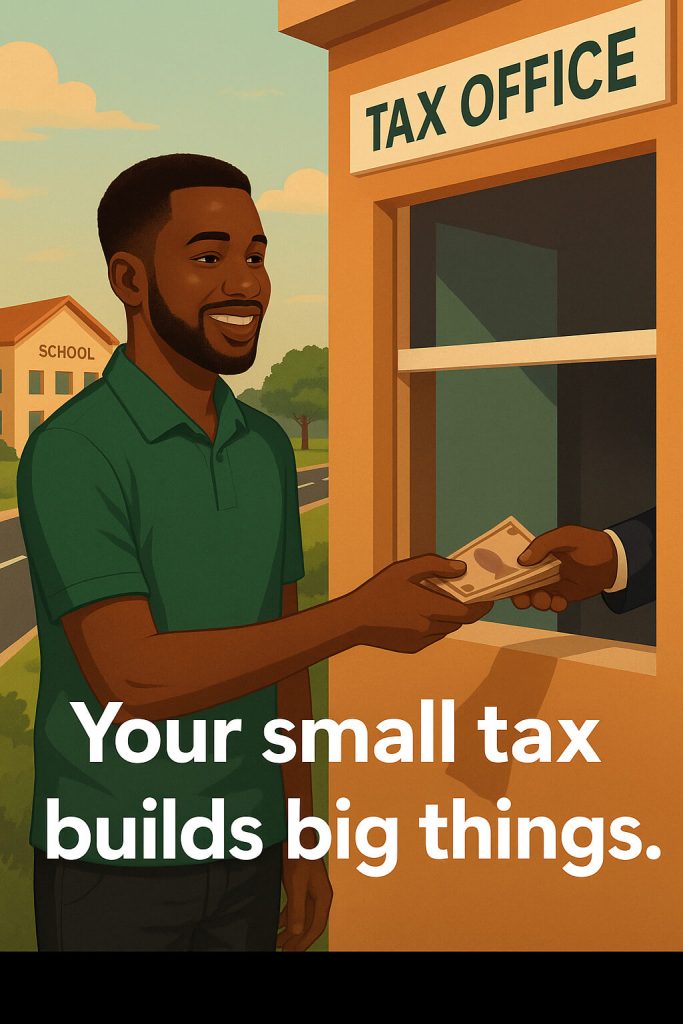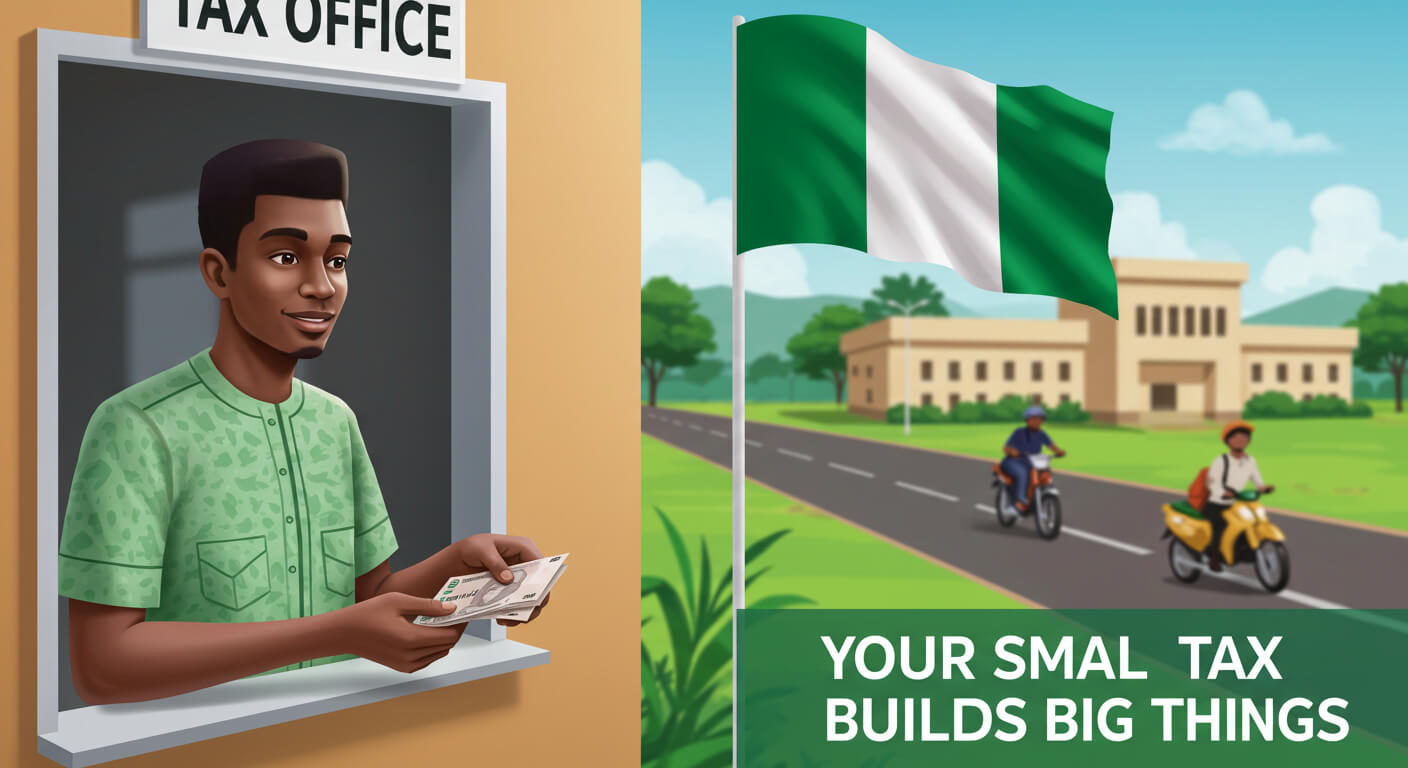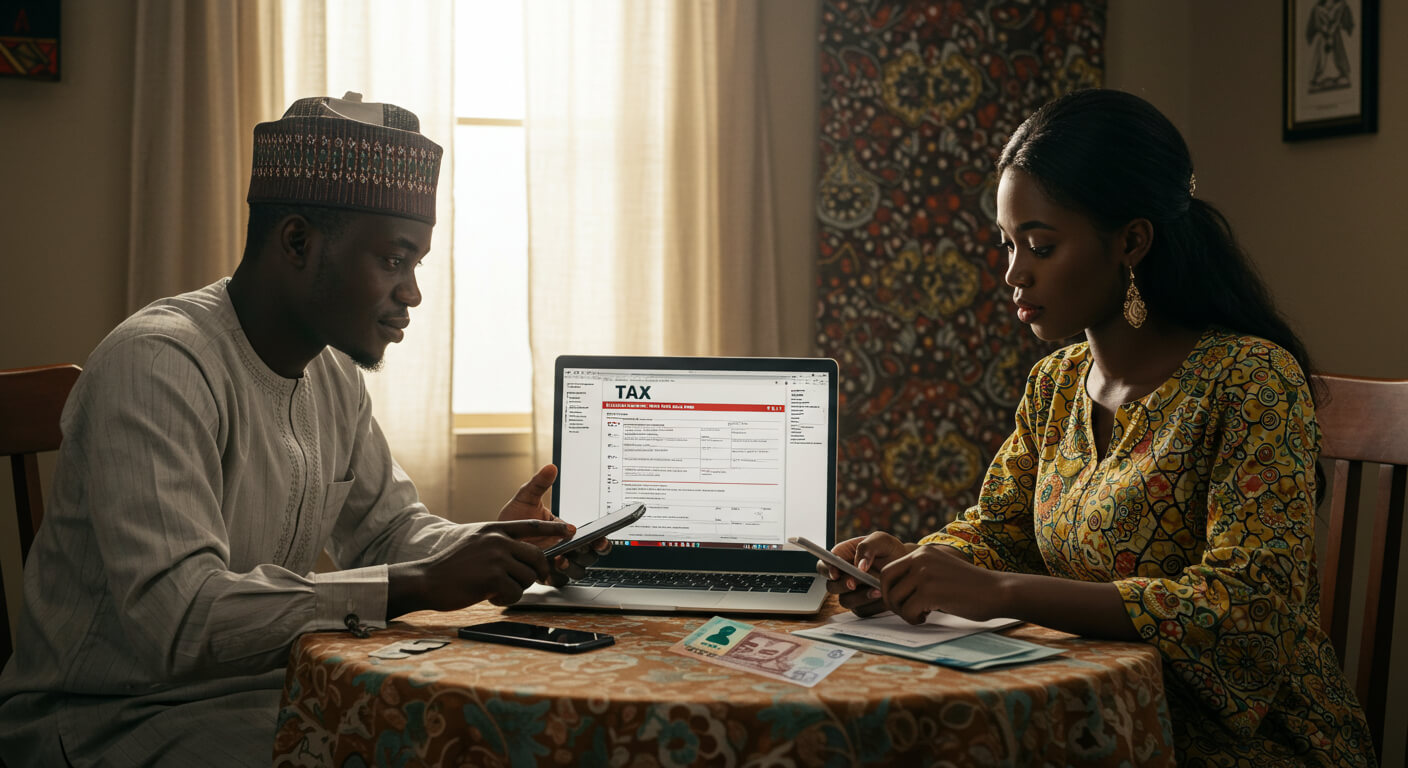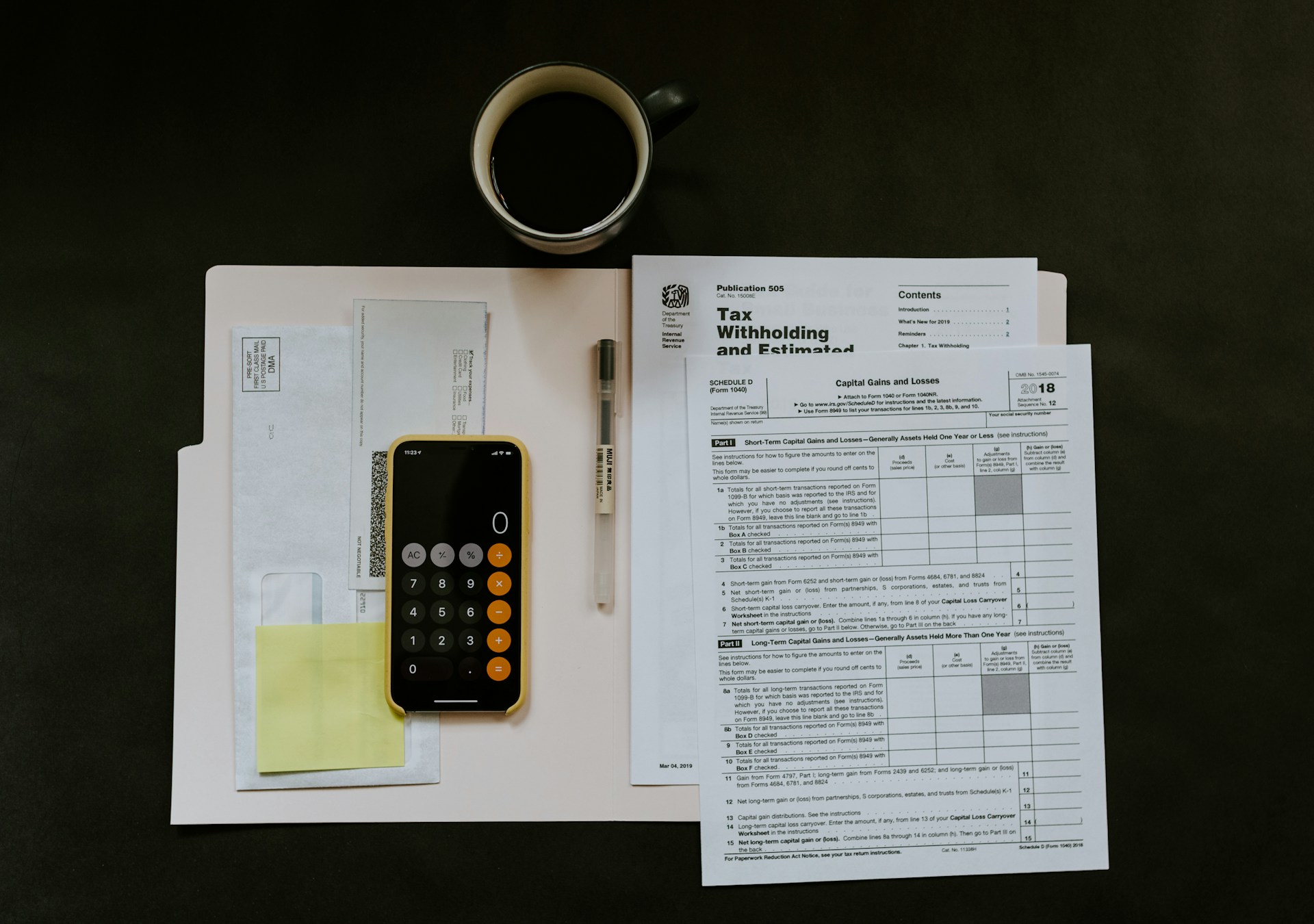Most Nigerians ask: “Why should I pay tax when I don’t see any benefit?”
It’s a valid question especially if you have never paid taxes or you’ve seen government misuse funds.
But here’s the truth: taxation is not just about giving money to the government. It is the foundation for a functional society.
Without taxes, Nigeria cannot build roads, pay teachers, provide electricity, or ensure security.
In this article, you will learn the real reasons why Nigerians pay tax and how it benefits you, your community, and the country at large.
1. Taxes Fund Public Infrastructure
Ever driven on a tarred road?
Walked into a public hospital?
Used a government school?
All of that costs money.
Taxes are what governments use to build and maintain public infrastructure like:
- Roads and bridges
- Drainage systems
- Schools and health centers
- Airports and seaports
If you don’t pay tax, these services will collapse or worse, never exist.

2. Taxes Pay Salaries of Civil Servants
Your child’s public school teacher?
The doctor in the government clinic?
The police officer ensuring security?
Their salaries are paid from taxes.
Over 60% of government recurrent spending goes to salaries, pensions, and overheads.
If taxes stop coming in, public servants stop working. That affects everyone, even if you work in the private sector.
3. Taxes Help Reduce Poverty
When people pay taxes, governments can use the money to:
- Provide free or subsidized education
- Fund healthcare programs
- Give grants or loans to small businesses
- Create jobs through public works
This is how developed countries lifted millions out of poverty. The same can happen in Nigeria—if more citizens participate.
4. Taxes Support National Security
No security, no progress.
From soldiers fighting terrorism in the North East, to police patrolling the streets of Lagos, security forces need equipment, training, and salaries.
All of that is funded by taxation.
If we want a safe Nigeria, we must fund it collectively.
5. Taxes Drive Economic Development
Every functioning economy needs investment in:
- Roads
- Electricity
- Clean water
- Education
- Health
These services attract businesses, create jobs, and raise incomes.
When you pay tax, you’re investing in the growth of your local economy—especially when those funds are used transparently and accountably.
6. Taxes Promote Accountability
Think the government is wasting money?
When you pay tax, you have the right to demand better governance.
Countries where citizens pay tax tend to have stronger democratic institutions, because people monitor how their money is used.
No tax, no voice.
Pay tax, demand accountability.
7. Taxes Are a Civic Duty
Just like obeying traffic rules or voting in elections, paying tax is your responsibility as a citizen.
You enjoy services funded by tax—even if you never paid.
Now is the time to contribute.
Nigeria cannot develop if most citizens stay outside the tax system.
What If I Don’t Trust the Government?
This is one of the most common concerns.
Many Nigerians say:
“Why should I pay tax? The government will just chop the money.”
That’s a real fear—and the government must do better.
But consider this:
- If more people enter the formal tax net, there’s more public pressure to use funds transparently.
- You can now track many government projects online.
- State governments are gradually improving on service delivery due to tax revenue.
Change starts when more people participate—not when we all wait.
Final Word: Pay Tax, Build Nigeria
Whether you’re a tailor, mechanic, techie, or market woman—you benefit from the system.
Tax is how we all contribute to making it work better.
Do not wait to be forced.
Do not wait till you earn millions.
Start small. Start now.
FAQ
Q: Do I need to pay tax if I’m self-employed?
Yes. If you earn an income from any legal work or business, you’re required to pay Personal Income Tax. Most states allow you to file and pay easily online or through designated tax offices.
Q: How do I know how much to pay?
States use a tax table to determine what you owe based on your income. You can speak with your State Inland Revenue Service (SIRS) for a breakdown or visit their website.
Q: What happens if I don’t pay?
Failure to pay tax can lead to penalties, legal action, or limits on doing business with the government or formal institutions.
Q: Where can I learn more?
Visit the Federal Inland Revenue Service (FIRS): https://www.firs.gov.ng
Or check your State IRS website (e.g., https://www.lirs.gov.ng for Lagos State)



